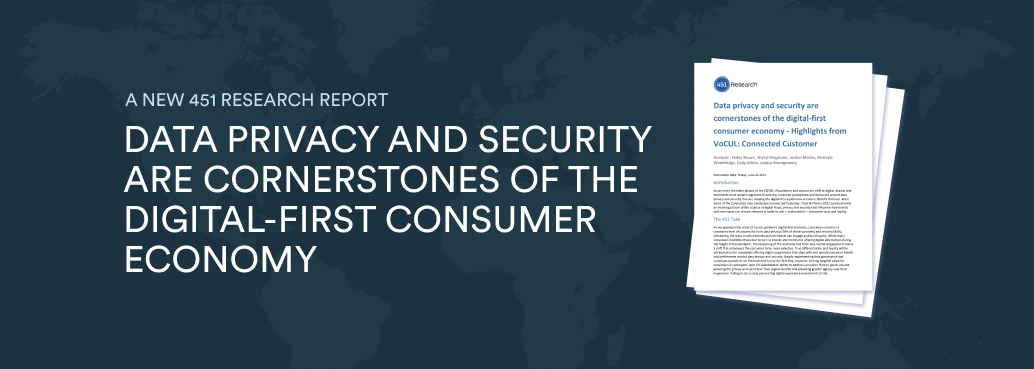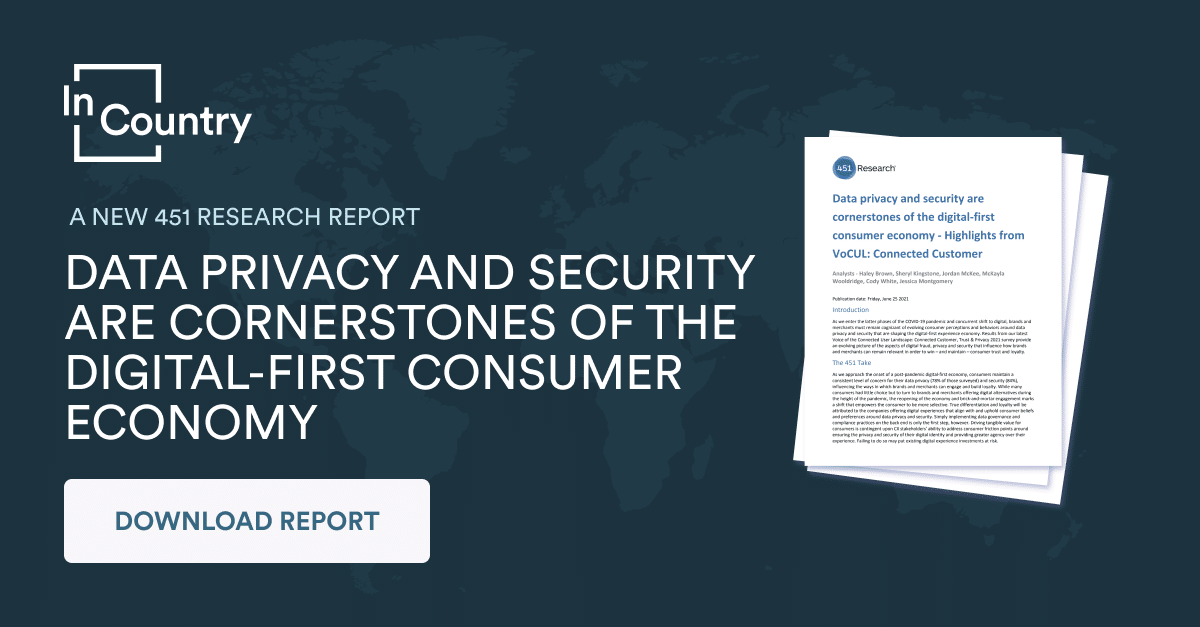As businesses have digitalized and online shopping has become the norm, consumer trust has turned into one of the most influential factors in which companies survive and which die. Many businesses do not yet realize the depths to determining exactly why consumer trust builds or crumbles. The calculus is not merely doing the bare minimum of avoiding data leaks and compromising customers’ credit card information.
451 Research’s Voice of the Connected User Landscape: Connected Consumer, Trust and Privacy 2021 survey examines the deeper layers of consumer trust in the modern digital economy. The main takeaway from the survey? Consumers want digital experiences that emphasize data privacy and security, but 451 notes, “simply implementing governance and compliance practices on the back end is only the first step.” While that is a telling conclusion, it is also important to get into why and how compliance should be the first step in building a proper digital ecosystem.
For one, the overwhelming majority of people see the potential risks of the digital marketplace and want something done about it, often forcing the government to pass some form of data protection legislation. 78% of respondents expressed concern about data privacy and 83% over data security. With GDPR bringing critical legislative attention to the matter, it is no wonder other countries are taking stock of their citizens’ concerns and passing appropriate legislation.
Read more: Data Residency Laws by Country: an Overview
Some of the legislation, particularly many of the state bills circulating in the United States, do not go far enough to actually ensure a positive consumer experience. The California Consumer Privacy Act, the first state-level bill to be passed, has already needed major amendments in its first several years of existence to close loopholes businesses were using to undermine the endeavor. Businesses have been resistant to allowing sweeping changes in favor of the consumer, but that approach is short-sighted. Public opinion has been turning and will continue to turn in favor of more digital privacy, which leaves businesses to either accept that and institute proper data protection, or pass an endless cycle of data protection bills that continuously push the goalposts in response to public opinion.
Companies, of course, have to stay compliant with any law that passes to avoid legal consequences, but the larger focus is on protecting their brand and public image–if a B2C were to have a single large-scale data leak it would harm the company forever. However, any law should serve as a baseline, a minimum, for what data protection practices should be. Compliance is the start because it removes negatives from the company’s path and shows some level of connection between citizens and the state, which informs the market atmosphere in a country. Simply aiming for compliance is usually not strategic.
This is especially true because the ‘how’ of compliance often lies in technology, which necessitates that companies anticipate both the digital and legislative curves.
Whether that’s using data residency services to distribute and localize data on a global scale or just working with a reputable payment processor on a smaller scale, maintaining compliance has the capability to establish good company-wide practices that should make any business more flexible in dealing with unexpected twists in consumer behavior or market conditions, but it is not a guarantee. Nonetheless, because compliance is by nature reactionary, those practices are only the first step to thriving in the digital economy, as 451 Research writes.
Keeping lines of communication and transparency open to customers and allowing them to control their data are the next steps toward improving the state of the economy. The majority of the survey respondents answered that the ability to deny access to their personal information and the ability to permanently delete the information a business has on them were key factors in their brand loyalty.
Unfortunately, these tenets are not in many data protection laws circulating at the moment, another reminder that the impetus to make data protection work is more on companies than governments. Luckily for business, a little goes a long way: 45% of respondents said they’d trust a brand more if the brand allowed them to opt out of cookie tracking.
More likely did not agree with that because so few consumers understand the difficulty of managing data protection and security, but education on the issue is not on the horizon. For now, business needs to adapt to the modern marketplace and not only achieve data compliance, but establish best practice data protection standards for their own bottom line and the health of the economy as a whole. The consumer is king and the consumer has spoken: companies need to earn trust when handling data, and that should inform every decision every business makes going forward.



